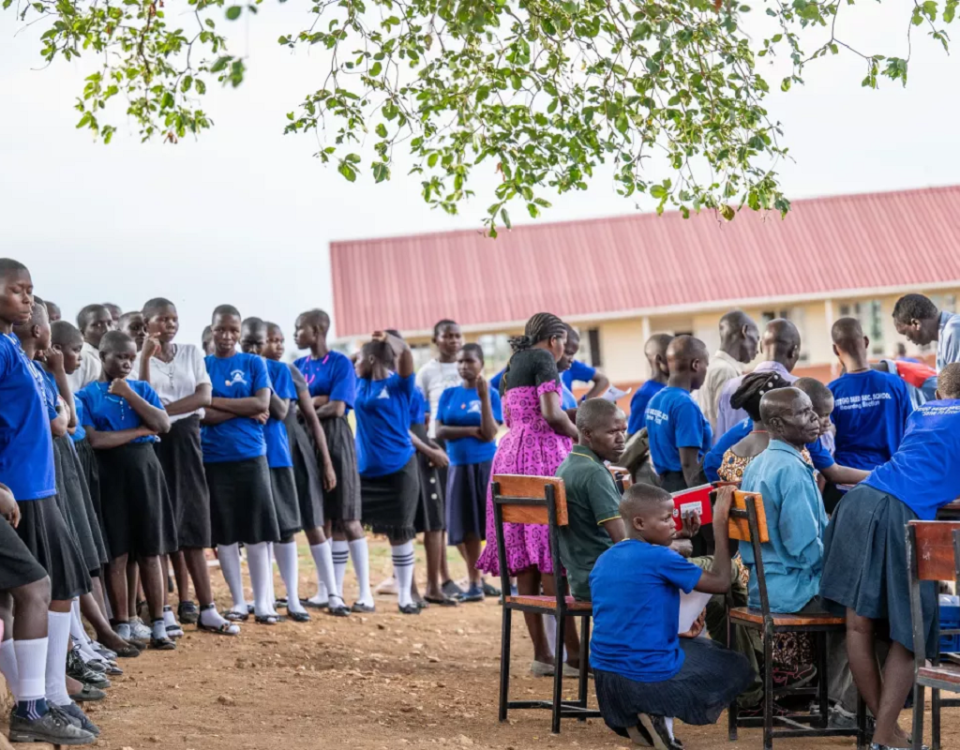- Have any questions?
- +256 750 878872
- info@paidhafm.com
THE EUROPEAN UNION (EU) MEMBER STATES COMMIT AN ADDITIONAL 40 MILLION EUROS TO SUPPORT GENDER EQUALITY INITIATIVES IN UGANDA

GENDER BASED VIOLENCE: THE DARKER SIDE OF CLIMATE CHANGE IN WEST NILE.
October 9, 2025
PRESIDENT MUSEVENI PLEDGES TO FIX ZOMBO ROAD NETWORK AND IMPROVE SOCIAL SERVICES
October 13, 2025THE EUROPEAN UNION (EU) MEMBER STATES COMMIT AN ADDITIONAL 40 MILLION EUROS TO SUPPORT GENDER EQUALITY INITIATIVES IN UGANDA


BY ROSE KASIGWA
The European Union (EU) member states have committed an additional 40 million Euros to support gender equality initiatives in Uganda — with a focus on eliminating gender-based violence and reducing teenage pregnancies.
Plan International launched its State of the World’s Girls Report on International Day of the Girl (October 11,2025), titled”Let me be a child not a wife.” The report focuses on girls’ experiences with child marriage, detailing how societal norms, weak enforcement of laws, and the exploitation of vulnerabilities on social media are perpetuating the practice.
The report highlights how child marriage is a significant barrier to education, with 63% of married girls in the study no longer in education, employment, or training.
The report key findings also indicate New Online Exploitation a disturbing trend that shows older men exploiting girls’ vulnerabilities through social media, offering marriage as a solution to their hardships.
The report further highlights Societal Pressures that is deeply ingrained societal expectations for girls to be wives and mothers persist, placing high value on fertility and obedience.
The document further points out that Child marriage remains legal in some places, but even where it is illegal, weak enforcement, legal loopholes, and informal, unregistered unions leave many girls unprotected.
The findings also indicate Child marriage is a major obstacle to education, with over a third of girls dropping out of school after marriage.
The report included the voices of 251 girls and young women who have experienced child marriage in 15 countries. Including Uganda, Bangladesh, Cambodia, Indonesia, Nepal, Ethiopia, Mozambique, , Zambia, Colombia, Dominican Republic, Guatemala, Ecuador, Nigeria, Niger, and Togo.
Speaking at the launch of the State of the World’s Girls Report by Plan International the EU Delegation’s Programme Manager for Gender and Human Rights, Thomas Kamusime said the report aims to confront the persistent violation of child marriage, which is increasingly urgent in a world with a global push back against girls’ rights.
He revealed that this new funding come on top of the 140 million Euros previously invested in Northern Uganda. Kamusime revealed, the earlier funds supported projects aimed at helping girls transition from primary to secondary education, tackling underlying causes of teenage pregnancies, and improving water, sanitation, and hygiene (WASH) facilities in schools.
“In addition to funding the Eu has used public diplomacy in cases where we are not of course to continue voicing concerns raised in such forums for the health of those who matter. I remember for example during COVID 19, Uganda had the longest lock down, there were alarming statistics of children that had been defiled in their homes and among the issues that were raised to authorities by the EU ambassadors was the issue to do with teenage pregnancy, arguing government for the opening of schools so that may be, the children can be safe” Said Kamusime.
Kamusime said that EU is using both their financial support as partners but also using public diplomacy and engagement.
Plan International together with its partners are calling for action to eradicate child marriage by breaking down the deep-rooted beliefs and social norms that lead to it.
The children rights Institutions are highlighting the need for policy and legal reforms to protect girls and ensure they have the chance to choose their own futures.


